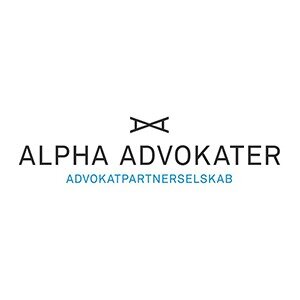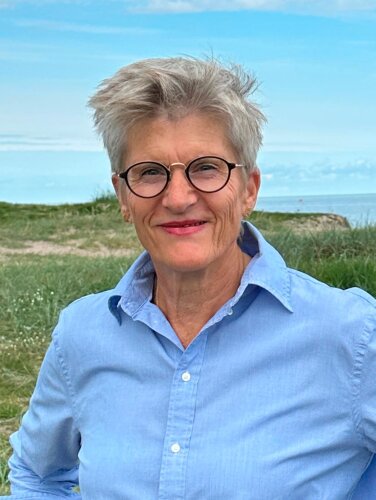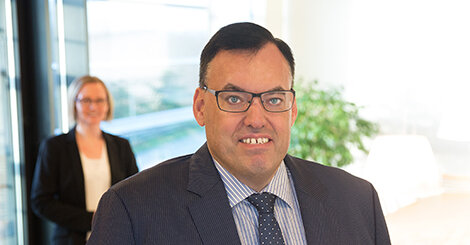Best Communications & Media Law Lawyers in Denmark
Share your needs with us, get contacted by law firms.
Free. Takes 2 min.
Or refine your search by selecting a city:
List of the best lawyers in Denmark
About Communications & Media Law in Denmark
Communications & Media Law in Denmark encompasses a range of regulations and legal principles that govern the broadcasting, telecommunications, internet, and media industries within the country. This field of law addresses issues such as freedom of expression, privacy rights, copyright, and the regulation of content across various media platforms. The legal framework is designed to foster a balanced environment where media freedom is protected while ensuring compliance with norms that safeguard personal and societal interests.
Why You May Need a Lawyer
There are numerous situations where individuals or companies might require legal assistance in Communications & Media Law in Denmark. Some common scenarios include:
- Navigating regulatory compliance for broadcasting or telecom companies.
- Handling disputes involving copyright infringements or licensing agreements.
- Addressing issues related to defamation or privacy invasions in media content.
- Assisting in the negotiation and drafting of contracts with distributors or content creators.
- Guidance on digital content regulations and compliance with internet-related laws.
Local Laws Overview
Denmark's legal landscape for Communications & Media Law is influenced by both domestic legislation and European Union directives. Key aspects include:
- Privacy and Data Protection: The Danish Data Protection Act complements the GDPR, enforcing strict guidelines on personal data use.
- Freedom of Expression: The Danish Constitution guarantees freedom of speech, but it is balanced against laws on hate speech and defamation.
- Copyright Law: Danish copyright law protects creative works, aligning with EU directives on intellectual property rights.
- Digital Services Regulation: Compliance with laws governing online content, including the EU’s Digital Services Act and Digital Markets Act.
- Broadcasting and Telecommunications Regulations: The Danish Business Authority oversees compliance and licensing for broadcasters and telecom operators.
Frequently Asked Questions
What is the scope of Communications & Media Law in Denmark?
It involves regulations in broadcasting, telecommunications, internet law, privacy, digital media, and intellectual property.
How does Denmark protect freedom of speech within media?
Freedom of speech is constitutionally protected, yet balanced with laws against defamation or incitement to violence and hate speech.
What are the privacy regulations concerning media content?
Privacy rights are governed by the Danish Data Protection Act and GDPR, ensuring personal data are properly handled by media entities.
Can I publish defamatory content if it is true?
Under Danish law, truth is a defense against defamation; however, public interest and intent also play significant roles in legal evaluations.
How are copyright issues addressed in Denmark?
Copyright law, in line with EU standards, protects the rights of creators and provides frameworks for infringement disputes.
What are the key regulatory bodies for media law in Denmark?
The Danish Business Authority is the primary body overseeing telecommunications and media, ensuring compliance with industry standards.
Is there a distinct law for digital content in Denmark?
Digital content is regulated under broader media laws, alongside specific EU directives like the Digital Services Act impacting digital platforms.
What should I do if my privacy is violated by a media company?
Consider filing a complaint with the Danish Data Protection Agency and seeking legal advice to explore further action.
How can businesses ensure compliance with media laws?
Seeking legal counsel for guidance on compliance and regular checks on adherence to regulations can mitigate risks significantly.
What legal support is available for content creators in Denmark?
Creators can access legal support for rights management and contractual issues, often through organizations and professional networks.
Additional Resources
For further information and assistance, consider these resources:
- Danish Business Authority: Provides guidance on media law compliance and licensing.
- Danish Data Protection Agency: Oversees privacy laws and personal data protection.
- Copydan: An organization managing collective copyright licensing for media in Denmark.
- Media Council for Children and Young People: Offers information on media influence and child protection.
Next Steps
If you require legal assistance in Communications & Media Law in Denmark, consider the following steps:
- Identify the specific legal issue or inquiry you have.
- Research and consult with a lawyer specializing in media and communications law.
- Gather all relevant documentation and information related to your case or query.
- Contact legal advocacy groups or relevant governmental bodies for initial guidance.
- Schedule a consultation with legal experts to explore your legal options and prepare your case if necessary.
Lawzana helps you find the best lawyers and law firms in Denmark through a curated and pre-screened list of qualified legal professionals. Our platform offers rankings and detailed profiles of attorneys and law firms, allowing you to compare based on practice areas, including Communications & Media Law, experience, and client feedback.
Each profile includes a description of the firm's areas of practice, client reviews, team members and partners, year of establishment, spoken languages, office locations, contact information, social media presence, and any published articles or resources. Most firms on our platform speak English and are experienced in both local and international legal matters.
Get a quote from top-rated law firms in Denmark — quickly, securely, and without unnecessary hassle.
Disclaimer:
The information provided on this page is for general informational purposes only and does not constitute legal advice. While we strive to ensure the accuracy and relevance of the content, legal information may change over time, and interpretations of the law can vary. You should always consult with a qualified legal professional for advice specific to your situation.
We disclaim all liability for actions taken or not taken based on the content of this page. If you believe any information is incorrect or outdated, please contact us, and we will review and update it where appropriate.
Browse communications & media law law firms by city in Denmark
Refine your search by selecting a city.

















